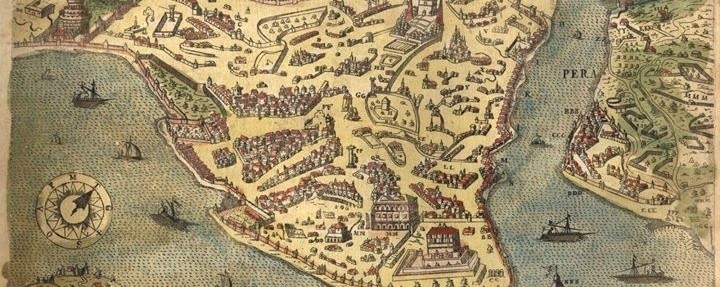
New Rome, Queen of Cities - Music from Constantinople
Byzantion. Nova Roma. Nea Romē. Konstantinoupolis. Basilis ton Poleon. Miklagarðr. Tsargrad. Rūmiyyat al-kubra. Takht-e Rum. Islambol. Stamboul. İstanbul.
The only city that spans two continents - Asia & Europe, Constantinople was described as 'Desire of the World' and the stuff of legends. Till this day, as a meeting-place of East and West, it continues to inspire and evoke.
As a tribute to the rich musical heritage of the city, Cappella Martialis present a very special concert of sacred and secular music from and inspired by what Greeks call 'The City'. The pieces selected reflect the various periods in the history of the Queen of Cities:
- Ancient Byzantion
- New Rome
- Sieges and Attacks
- The Latin Empire
- The Palaiologan Restoration
- Laments for the Fall of the City
- Ottoman Kostantiniyye
- Jews & Armenians in Late-Ottoman Istanbul
- 19th C Istanbul and Beyond
Highlights include: the Seikilos Epitaph, which is the earliest piece of notated music that survives complete anywhere in the world; early Byzantine chant; Medieval Spanish songs about miracles in Constantinople; an extract from the Sunday Divine Liturgy (Mass) as might have been heard in Hagia Sophia in the early 1440s before the Fall, including acclamations for the Emperor Constantine XI which have not been sung since 1453, researched from manuscripts in Athens, St Petersburg, and Mount Athos; laments for the fall of Constantinople - one in French and Latin by Guillaume Dufay, one by an anonymous author from the Greek Islands; Ottoman Turkish court music; a Ladino song from the Sephardic Jews of Asia Minor; and music by Armenian composers connected to Constantinople.
Languages sung in this concert include Classical and Medieval Greek, Latin, Renaissance French, Classical Armenian, Ladino, Galician-Portuguese, Bulgarian, Ottoman and Modern Turkish. There will be programme booklets with full translations of sung texts.
For this concert, Cappella Martialis will be accompanied by a panoply of appropriate instruments including harp, citole, ud, kanun/kanonaki, fiddle, shawm, recorder, dulcimer, violoncello, piano, as well as authentic Medieval and Turkish percussion (adufe, darbuka, bendir etc).
As usual, admission is free but there will be a retiring collection toward the upkeep of the church, which is Singapore's oldest church and a national monument.
For those who want to know more about the music, our instruments, and Constantinople in general, there will be a short pre-concert talk at 7:30 P.M.
NOTA BENE: We are doing two performances - one on Saturday 10th and one on Sunday 11th. Both at 8 P.M.
Trivium: the Fall of Constantinople in 1453 happened on 29th May. 29th May on the Julian calendar corresponds to 11th June on our civil Gregorian calendar, hence the timing of our concert!